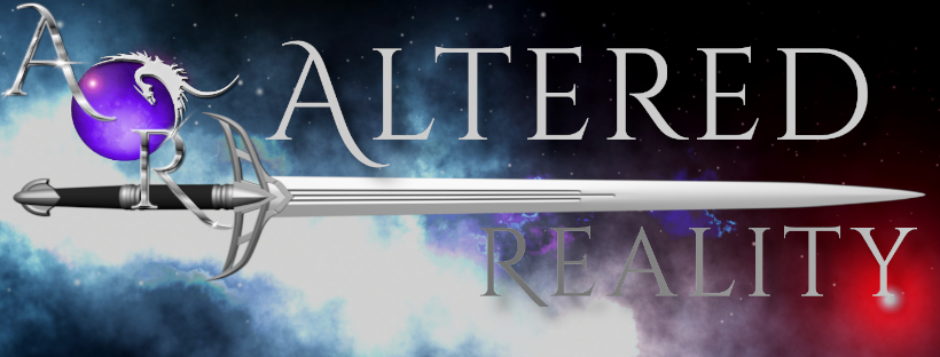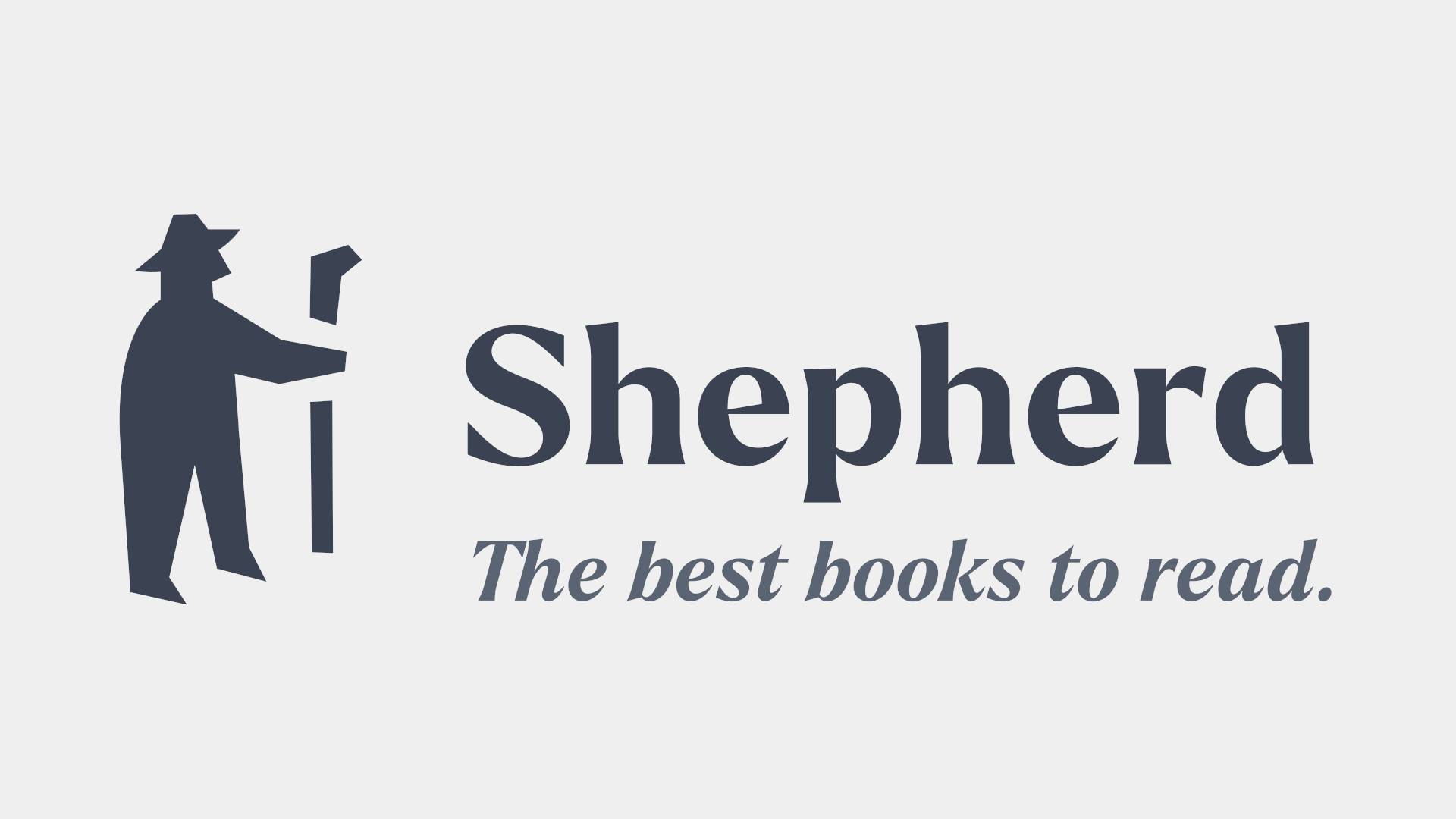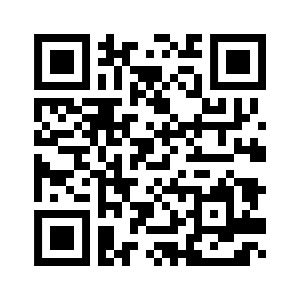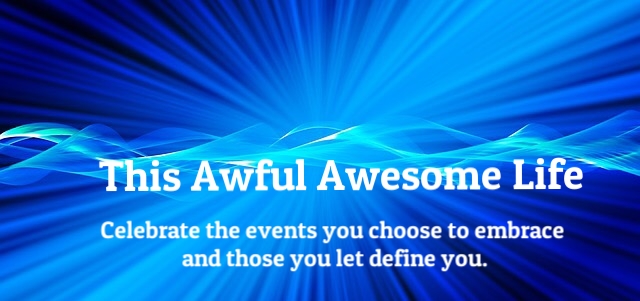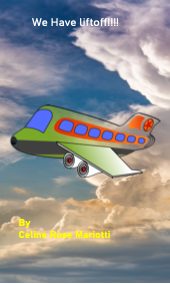Charlie scribbled on the mental Post-it what he was calling the new nanny: MOL. Setting the bot’s power pack on SELF-CHARGE, he pinched himself, not believing his luck at how quickly the delivery had arrived. As much as he loved Meg, harder for him to live without than his wife, was their staff. It’s for the kids, Charlie told himself.
The first month had been beyond hard. How he’d lasted three, Charlie didn’t know, but had an inkling that he pushed to the back of his mind. Some things were best not dwelt upon.
Catching his reflection in the model’s shiny exterior, he paused for a closer look. Dark hollows around his eyes, the gaunt line of his cheeks, he was a shadow of his former self. Wagging a mock scolding finger, his eye caught the smudge of a thumbprint on the bot’s high-polish aluminium which he bent down to rub out with his elbow. As he tugged on the sleeve of his old jumper, Charlie crumpled like a piece of paper and fell in a forlorn heap to the floor. Meg had promised him a replacement. It was the tawny-brown quarter zip, the first of many she’d knitted for him, and in the recycled alpaca wool purchased on their first trip to South America. They were still in uni back then, both ostensibly backpacking. (Meg’s slumming it had become a family joke.)
But all that wool! His eyes misted up as the smile in them glistened. Collected from everywhere on their travels, that time the number of accumulated balls saw their buyer forced to fly Business coming home, and Charlie riding along, enjoying the upgrade, the crawling fear of never being able to adjust again to long hauls in Economy drowned by free-flowing refreshment. Now, the more cushy than cramping lifestyle was as difficult to let go of as the woman who’d given him his first taste of living well.
And now fully unveiled in the carpeted study, the bot was a beauty. Charlie stared agog, marvelling at its smooth exterior, the curve of her top, her tapered back. SCRATCH-RESISTANT, the paperwork said. He felt a tingling in his hands then quickly got up, balled fists tightly clenched. Should he make the first mark? Make the thing his own, get the business done with and out of the way?
Quickly pouring himself a drink, Charlie downed the swirling russets and reds in the glass and resisted the urge. He recognised it for what it was: like a pissing tom cat staking a territorial claim. But the acquisition was to fill the gaping hole in their lives—the children’s, not his—if not the maternal role vacated by Meg’s departure. He was ill-equipped for it himself. He’d ‘fathered’ them and he would protect the brats even if the word itself seemed to imply anything beyond provision of sperm was a feat. Whereas the verb ‘mothering’ imputed a nurturing to adulthood, the implication of ‘fathering’ was of a job well done celebrated at birth with hearty slaps on the back.
Enough with the honesty. Give nothing away, was his parting advice to Meg. Glancing over his shoulders, a habit now, though there were no cameras inside—as far as he knew—Charlie reminded himself he’d do well to also heed the warning. Not that anything could replace her, let alone this pile of wire, code, and bolts— He let out a bitter laugh. The world had gone nuts! Still, having the bot around would help. Was help. And was a start.
All of four feet high, the MADE IN POLAND gadget was HOME-GROWN AND AFFORDABLE. The ads had delivered as promised. He had the reverse brain-drain in robotics to thank for this. Other Polonia had been steadily coming back for decades, particularly from America where the largest of the Polish diaspora used to live. Though their returns had been largely by choice. Still, what did he care if Silicon Valley was crying? This bot was just what Luna and Saul needed to help them settle in here, a place as alien to him as it was for them.
The kids are going to love it! At the thought, Charlie lit up a little inside. Even this bubble-wrap. Clearing away the packaging, he supressed the urge to pop a few of the delectable nodules himself. Then delicately, a rod at a time, he untethered their new toy’s legs. Pausing for another swig from the tall-stemmed glass resting next to him, the rich liquid warmed him further. Truth was, having a ‘Mol’ around made Charles Henryk Gold feel more thuggish, more gangsta, not in the least emasculated for failing to protect his real woman. He was no mobster (mild-mannered at best), and there was the ‘measure of substance’ as well that the name exuded, to which he knew Meg would be certain to roll her eyes.
‘In “mols” per litre, get it, bot?’ Charlie got up and topped up the glass from a wide-bottomed decanter that nestled hidden between the folders on his desk. ‘Heard of the unit? You know: mol/L with m-o-l in lowercase, a slash before the capital ‘L’. Or do bots say “moles”? Well, it’s “mawl” because the measure is for molecules. That’s right, what we’re made of. What gives us substance, Mol. Do you hear me?’ Charlie stopped himself and took another sip. ‘Go on then, give us a laugh.’
What are you doing, Charlie? Meg’s heavy whisper in his head stung with accusation.
He peered at the bit-driver already embedded in his palm. How could he get the thing to open its mouth?
Charlie, stop.
‘She’s a bot, Meg.’ He wanted to add, ‘She’s also here.’ Instead, he addressed the naked metal object. ‘Say, it— MAW-LL . . . No? The wordplay trivialises? You don’t do puns? What, this isn’t one? You’re the pun police, now? Actually, you know what, Mol? Yes, you, Mol. You sound homeless-ss. That’s right, homeless people argue a lot, when it’s not their place to. Just with their eyes, just by existing. Homeless people have too much to say for themselves. And we don’t want to see them, do we? But you know what’s funny, Mol? You— You’re not funny.’
Charlie eyed the bot—upright next to its box, gently whirring, still charging.
Homeless-ss! He continued the rant, this time slurring only to himself. He was homeless without Meg. Homeless like the people sleeping in tents on the outskirts of town, the ones he was instructed not to help. As homeless as the former owners of this house that came with his new job. Charlie downed more port. Swirling the remedy as if cupped in his open hand, he was tempted to smash the glass, to break the slender, fragile stem and feel its brittle cutting shards.
Down went another gulp.
Full-bodied, sweetly comforting, the dwindling selection in the cellar his only companion with Charlie entertaining only Meg, far away in a different sort of port on 9-9-6: nine a.m. to nine p.m., six days a week. Now there’s a joke for you— In China, workers refused to rest! No matter how many laws were passed, the pissing diehards persisted, forcing Meg to keep the bloody hours, too. When would people learn to obey? The ban was a good law, like other laws laid down to protect people from themselves. Countries, too, come to think of it— He shuddered at the memory of flouted ICJ verdicts, the list spanning longer than the extended reach of Mol’s robotic arms. What was the point of an international court—any court—if enforcement was voluntary? Charlie recalled coming out of Public International Law lectures (PIL, for short), how he and Meg found it a lark that principles simply declared could be expected to be taken for laws. That PIL had become a bitter one to swallow for all the world.
But the funniest thing? And at this, Charlie snorted: As laughable as it all was, he couldn’t bring himself to laugh anymore. Spent, he was out of laughs.
He poured himself another glass. In a few hours, he would call Meg.
#
The noise coming from outside filtered loudly through the open French doors. Ceiling to floor, they spanned the length of one wall and provided ample views of the courtyard below.
‘Take that, you brute!’ A shrieking Saul pranced about with a plastic sword.
Charlie looked up from behind his desk. ‘Oi! Mind the tree out there! And Mol.’
His son could chase as many imaginary beasts as he wished to beyond the stone quadrangle, but it was beneath the old oak outside Charlie’s study-cum-office, the old town house’s former library, that Saul always played. Testosterone (possibly building-up?), that’s all it was. Charlie didn’t like to say: ‘Boys will be boys.’ He also had a daughter and like all fathers of girls, preferred to defer concerns over ‘girls being girls’ for as long as possible.
‘Die, you evil monster!’
At this, Charlie got up. ‘Nothing else to slay besides bots, eh? Dragons? Unicorns? Celebrity influencers?’
‘Huh?’
‘Mythical creatures, or those that ought to be extinct?’
The boy’s face drew a blank. ‘No, Dad. Nie, nie—’
His son’s use of Polish chafed in a way Charlie couldn’t explain. ‘You’re lying, son. You know how I know you’re lying?’
Saul’s face grew blanker than blank.
‘Your lips are moving, that’s how! Now be careful to not scratch that tree. Not a scratch, understand?’ Charlie suppressed the twist of a smile as he regained his desk. What the boy needed was his mother. As did he.
As junior barristers lunching on sandwiches in Gray’s Inn gardens, Meg was always quick to unpick his non sequiturs. And where was the logic in living without her in Poland of all places, where they’d never even vacationed? Due to his genome score Charlie was literally ‘working from home’ on account of three grandparents being Poles. (His other nan was a Scots.) But the bloody number—what he’d come to call it—hadn’t made swapping London for Kraków any easier: He knew no one, spoke the lingo badly, missed Walker’s Crisps to bits, still didn’t know his diacritics well enough for dyktando (the dictation tests so big here).
Here, Charlie scarcely left the house. Mol shopped, prepared their meals, did laundry, even understood the memes she played for the twins, sang them to sleep or counted sheep till they drifted off. He struggled with fairy tales. Wanted only to warn them that nothing good could come of Rapunzel letting down her hair. And free food? Snow White was best advised no matter how glowing the pitch, bad apples were bad apples, full stop. The bot had been a Godsend since her arrival a year ago, as Charlie was reminded of each morning:
‘Saul’s pulse continues to be erratic, his arrythmia too regular. Still the same high-frequency low sleep scores for Luna. You must do something. When will you do something? Do fathers do nothing? Do you require this saved or erased?’
‘Take that, and that, dirty bot!’
Charlie looked up again from his papers. ‘Saul, quit kicking Mol!’
In front of his desk, a groan emanated from the sofa. Luna was watching The Little Mermaid again for what must be the thousandth time.
‘I did say we could change its name. To maybe— Molly?’
‘Ariel changes species, Dad.’
In Charlie’s head, the words: and grows feet, gains standing, breeds, attached themselves to the child’s complaint. He landed on, ‘Ariel adjusts,’ as the safest response while: What your mother finds unable to do, tore at him. He avoided saying ‘assimilate’. It was too soon. Soon, they’d have to bleach Luna’s silken locks. From black to first deep brown, then dirty blonde, and lighten her brows. It would ruin her hair, God knows what besides, 100% organic dyes, notwithstanding. For now, for as long as possible, Luna had her wig. He smiled thinly at the shock of pink that disappeared back into the sofa’s hold. Her favourite—an orange bob—was a goner, lost when they’d tried to visit Meg. Which had been the worst idea.
First, the officer at border control in Shanghai had pointed at his tag that said: WANG MIN, and mouthed to Saul that his real name was David.
Then, before Charlie could stop him, Saul, overcome by the gesture, had replied too loudly: ‘Woah!’
‘More like woe, right?’ the officer said wink-winking, the bot beside him spinning like a high-speed centrifuge. That was when David-slash-WANG MIN mentioned its tendency to overheat.
Charlie had trouble breathing. His arrythmia spiked off the charts, as testified by Mol’s non-stop beeps that sounded more like a distressed kitten’s mews. Why hadn’t he switched her off? Two ancient kings of Israel bonding as returnees to locales other than the Levant was just too much. But like the Chinese David, a Polish Saul without blood connections to back his profile could be expected to be similarly stripped. It was only a matter of time before Saul was converted to Paul, though the Pole form Pavel would be better tolerated.
You should know these things, Charlie! What kind of father are you? Meg again.
‘The kind who’s doing his best,’ he would have said if only he’d got to tell her in person.
On the spot, Mol did the search, zooming-in on rulings for their bloody numbers.
His own name, Charles, would become Karol. But all Sarahs wherever born, Susannahs, Susans, and Suzannes, and bearers of all their derivatives were required to relinquish these names unless native to the Levant. Esthers, Lilliths, Rebeccas, Rachels, too. All false Jacobs, Jakes. Joshuas and Joshs must also change.
Charlie checked for exemptions. Yaakubs and Yahayas, considered EQUIVALENTS, were permitted to remain the same provided they were born in Arab lands and those adjacent, or had returned. As were Abrahams and Ibrahims, all Jobs and Ayubs, Josephs and Yusufs, their regional differences deemed erased. In the same vein, a returnee named Musa would be recognised for the Moses that he was. So, too, Daniels; Michaels, Mikhails, Mikas. Also, Gabriels, Gabes and Jibrils. Every Noah and Noh; Jonah and Yunus. Any Adam and Eve or Hawa as she was also known, our original father and mother. Had the world blasphemed, Charlie wondered, for naming babies as they pleased?
‘What about Mary, Maryam, Fatima?’ Luna piped up from the floor in front of WANG MIN-slash-David’s counter, bug-eyed and over-tired. Her black hair straighter than wire, the bright orange wig disappeared.
‘Low sleep count bordering chronic, possible jet-lag. To save or erase?’
‘Or Mariah?’ Luna screamed above the bot’s audio. ‘Is Mariah allowed, Dad?’ It was the
sprite’s middle name. And when she asked what Mohammeds outside Arabia were to be called, Charlie’s heart had stopped. His little lunatic. His radical. He blamed Disney for failing to provide religious context.
That was when WANG MIN-slash-David’s out-of-control bot had identified Luna as more rightfully returned to China than Poland and had set-off the alarm that landed them on the next flight out. Charlie’s wallet did the thinking. Fast, it wasn’t cheap. (Mol was relegated to cargo.) An outrageous fare, plus some. Nor was it fair. What it was, was a close call. And dreadful that whilst the world was turning anti-clockwise on its axis, gone topsy-turvy like Mol in REVERSE MODE, what hadn’t changed a smidge was self-interest. His own as much as the corrupt David’s. That primal survival instinct that put preservation of one’s own skin first. Another rule that defied manmade laws. Never again! Charlie told himself, though deep down he had to accept this universal truth: Bottom-line, no father—no parent, rather—could be more grateful for the enduring power of the bribe. Meg had cried when she’d heard.
‘Take that, you bot!’ THWACK-THWACK-CRACK.
Was the boy climbing now? ‘Get out of the tree, Saul! Mol, get him down!’ Charlie froze at the sight of spikes emerging from the ends of the bot’s leg-rods. ‘Luna, quick! Stop them before we lose any limbs. And I don’t mean his. That oak is a national treasure.’
‘Go yourself, Dad.’
‘Dad’s trying to work, Sweets.’
‘Go on Mol! Maul Saul!’ came the response from the sofa.
‘Think that’s funny, do you?’
‘Mum would.’
Well, Mum’s not here. Baited by a child. Don’t go there, Charlie told himself. But he did have a tree to protect. A deportee refusing to be returned according to his genome score could get mauled to death and no one would bat an eyelid, but ruffle the leaves of an ancient oak, and you’d be looking at jail time. He would know, it was his job now to enforce the rulings of the Council of the Order of the White Eagle, a centuries old Polish institution—a step up some would say for a British barrister.
But speaking of orders, as he raced outside, Charlie made a mental Post-it to place an order for another bot. He’d call it . . . Yes! —David. In a roundabout way, Pavel (no longer Saul), would be reminded of his real name. Charlie (Karol) chortled out loud, but caught himself, feeling the hot prick of tears behind his eyes. Never mind.
Never mind.
Never mind.
The words reverberated with each step on the cold stone slabs. Crossing the grass, upon reaching the tall oak, he looked up. Rooted beneath its boughs as he tugged on his son’s legs, Charlie took in the tree’s topmost branches and felt the strength of its claws gripping the soil. An earthy scent of budding acorns filled his lungs. This girth of concentric rings dated back to the age of kings if not prophets, then communists and socialists before democracy, and the far-right that had toppled right-minded governments crashing down across the globe with the calamitous collapse of centralised power. Like the great tree, they were full circle once more. But far from exalted. It was back to being cavemen: confined by place, in situ, ignoble.
About the Author
 Farriz Mashudi is a former lawyer, journalist, and blogger, turned writer of both CNF and fiction in short and long forms with a penchant for the speculative. Born in Malaysia, she has lived in Canada and the UK. She currently resides and works in the Middle and Far East amongst a plethora of local and expatriate cultures that both inform and colour her writing. Robots, she’s currently obsessed with.
Farriz Mashudi is a former lawyer, journalist, and blogger, turned writer of both CNF and fiction in short and long forms with a penchant for the speculative. Born in Malaysia, she has lived in Canada and the UK. She currently resides and works in the Middle and Far East amongst a plethora of local and expatriate cultures that both inform and colour her writing. Robots, she’s currently obsessed with.
![]()
